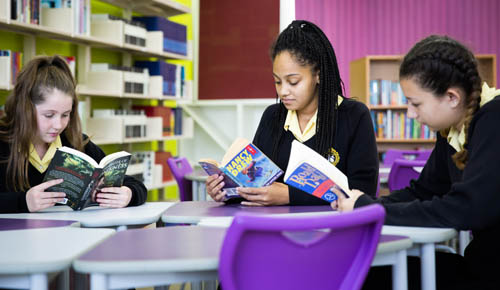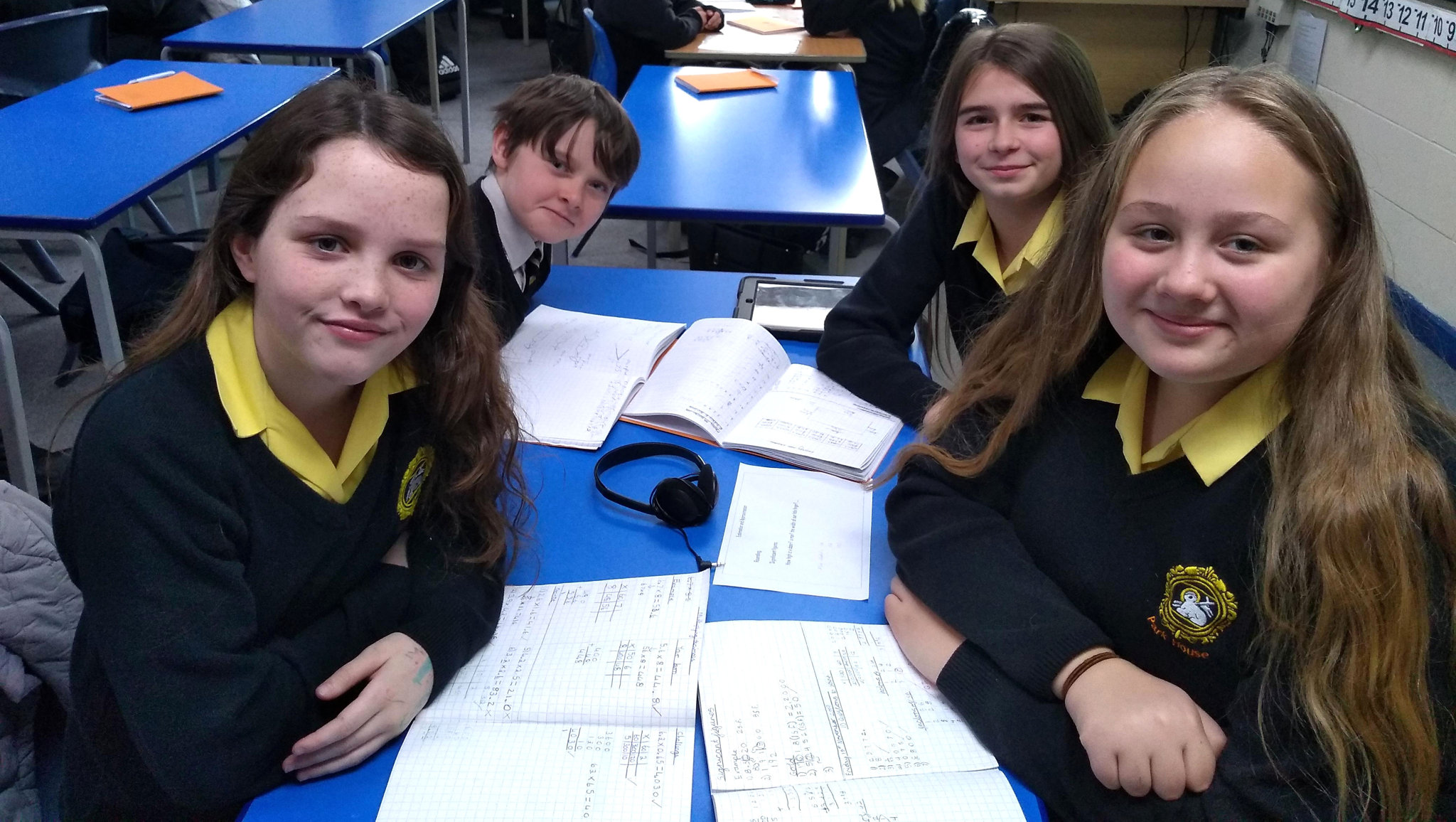

The Reading Curriculum - Intent
It is said that everything you read fills your head with new bits of information, and you never know when it might come in handy. It is however well known that students’ reading habits are changing. We are not necessarily reading less; we are just reading differently. For example, people are exchanging the traditional books for electronic books.
We believe that every teacher is a teacher of reading and every subject ensures that they build reading into their curriculums and use strategies that enable students to develop their resilience, fluency and confidence when reading. All teachers understand that reading is fundamental to accessing the demands of GCSE exams.
Teachers have received CPD on phonics and how to incorporate more reading into their lessons. They understand how to promote reading skills to pupils, in particular, reciprocal teaching of reading strategies (summarise, clarify, predict, ask questions).
We foster a culture of reading around school, in every classroom, with every teacher. We want to help children to build an emotional relationship with books and know that our students have been exposed to a range of texts throughout their time at Ashton. Sharing and talking about a book together is important- how else will they realise that it can enjoyable and social activity? Each week, form tutors read a book with their forms (Register and Read) These texts form part of the Ashton cannon. They have been carefully selected to move students to have a more nuanced perception of the world around them through novels which reflect their own identities (mirror texts) as well as providing insight into the identities, experience and motivation of others (windows). It is our aim that, through this approach, we will encourage students to develop a love of reading and give them a hunger to read other novels in the series or by the same author.
The Ashton Cannon
|
Year 7 |
Year 8 |
Year 9 |
Year 10 |
Year 11 |
|
I am Malala |
Unique |
The Edge |
The Bombs that Brought us Together |
Noughts and Crosses |
|
The Curious Incident of the Dog in the Night-Time |
Non –fiction texts |
Non- fiction Texts |
Non- fiction Texts |
The Ant Colony |
We know our pupils well, and we know about their different reading abilities. All our students are assessed using ART reading tests (Hodder Education) and we use the data to ensure that students are given the correct support. It is also shared with staff who then use this to scaffold learning within the classroom.
We do not want any student to be left behind in their reading, so we identify gaps in reading skills quickly and intervene. It is our aim to ensure that every student leaves school reading either at or above their chronological age.
The reading curriculum has been developed around ‘I can statements’ The students will regularly assess themselves against these statements.
Students in year 7 and 8 have a dedicated one-hour reading lesson each week. During this lesson, students follow a reading programme that meets their needs and which helps them to further develop their reading ability. The reading curriculum has been developed around ‘I can statements’ The students will regularly assess themselves against these statements.
Students with a reading age more than 2 years behind their chronological age are further assessed by the Learning Support Department to gain an insight into the nature of their reading difficulties. If a pupil has decoding difficulties preventing them from accessing texts, they are selected for the Read, Write Inc programme (SSP validated) or Reading Laboratory which are catch-up and intervention programmes with proven results. Students are taught in small groups by a trained practitioner and make quick progress. Once they are reading at their chronological age they graduate from the programme.
If a student has comprehension difficulties they take part in the literacy programme which is a bespoke scheme of work aimed at improving students understanding of texts. They also take part in the Accelerated reader programme. Reading skills are taught explicitly and more practise is given to extracting the meaning from texts and developing their use of reciprocal reading strategies. The aim of this programme is to allow students to develop their metacognitive skills and to be able to access texts independently and develop their confidence when faced with challenging reading material.
Students who are reading significantly above their reading age work in a small group with the school librarian and read challenging texts. The emphasis on these sessions is to develop their critical and analytical reading of texts.
Please see below for additional information regarding reading and other ways we promote reading at Ashton
Ashton's Reading Curriculum
Book Buzz
Our Library
Recommended Reads
World Book Day
How can i support my child with reading?